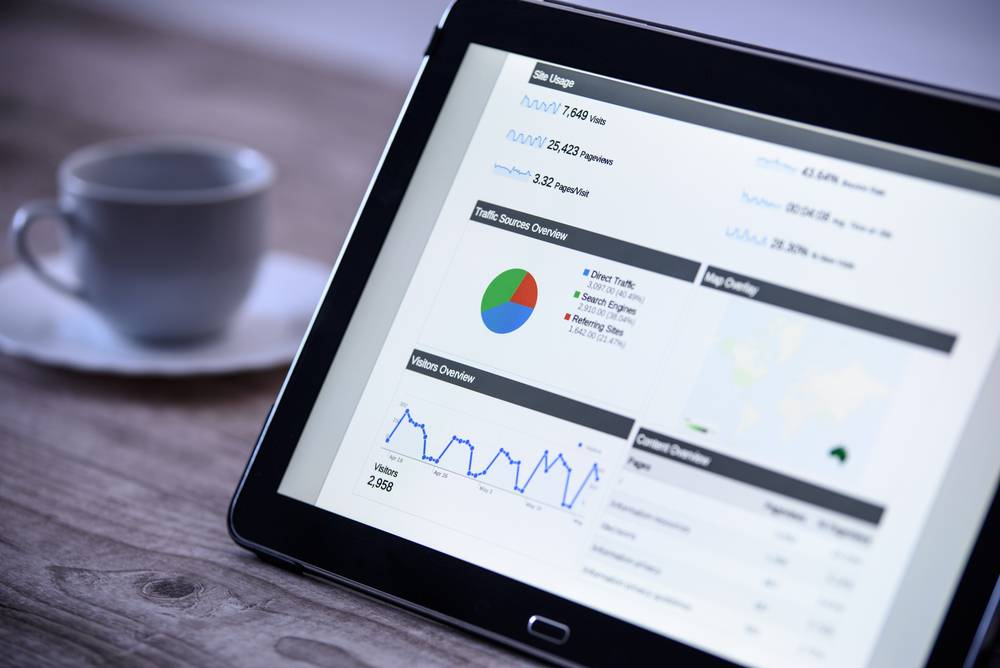Artificial intelligence was a concept that existed for a long period on the fringes of the tech industry. The majority of people regarded it as science fiction and did not pay it any attention. As technology evolved, automation, big data, and analytics with increasing power influenced the way marketers thought. The same concepts are pushing artificial intelligence away from fiction and into the marketing realm.
Artificial intelligence is a combination of technologies and concepts that have been around for a long time. This creates a powerful solution. Here are the key elements of artificial intelligence as they relate to marketing.
Big Data Artificial intelligence is dependent on large data sets to function effectively. AI will enhance your ability to segment data and use it effectively.
Machine Learning This is the automated part of artificial intelligence that gives you real data and insights. The analysis of past events will automatically create trends and responses (hence the need for massive amounts of data). The best part is that the insights are constantly iterated, improving, and learning from their own mistakes.
Speed AI is about speed, just like automation. A machine can process and analyze data much faster than humans. You will have a huge advantage over your competitors who are still using the traditional methods.
Artificial intelligence and digital advertising have many benefits. It allows you to expand your personalization. This is one of the most effective methods to increase retention, conversion, and more. Your marketing campaigns can also be scaled easily. AI can handle things accurately and quickly, saving time and money. It also reduces the impact of human error. Finally, AI insights can be used to improve other campaigns and strategies. This will dramatically improve every KPI.
Even with these benefits, it can be overwhelming to begin a digital marketing AI strategy. Here are eight ways that companies have already successfully incorporated AI into their digital marketing strategies.

1. Product Recommendations
Amazon is a great way to see artificial intelligence in action. You’ll get recommendations when you next log in to your account. Amazon will recommend products that it knows you are likely to buy based on your past search history or purchases.
You don’t need to abandon this idea if you don’t have an online shopfront. You can use it to create content. What else would they enjoy reading if they read a blog post? What video would they like to watch next? It is extremely beneficial to be able to predict what your audience will like based on past behavior and to have the ability to serve them that content automatically.
2. Data Improvements
Artificial intelligence offers you endless opportunities to improve your data models. As a marketer, your job is to find clever ways to interpret and act on these data. This is a good example. You should know at what point in the funnel your customers are most likely to buy or not. Artificial intelligence helps you to dig deeper. You can examine the horn to find out precisely what causes conversions and drop-offs. You can also look for prospects that end up wasting more time and money than they are worth, and remove them from the process. This will boost your ROI by ensuring you only work with the best customers.

3. Competitive Pricing
It is possible to have dynamic pricing. Take the travel industry. Prices can vary drastically based on seasonality, timing, availability, and more. This can be taken to the next level by leveraging machine learning. You can analyze the buying behavior of consumers to determine what is most important, their price sensitivity, and how much money they will likely be able to spend. The price is then automatically optimized to suit them. Price may be reduced if they are price sensitive. If they’re not price sensitive, you could increase it to improve your margin. You’ll end up closing more sales and enjoying a higher margin.
4. Segmentation Enhanced
Digital marketing is a powerful tool for personalization. Artificial intelligence takes it to the next step. Machine learning can analyze a customer or prospect’s behavior against that of other customers to determine what they want and need. The most recent behavior can be used to create complex buying personas and change them. You can, for example, change the segment to reflect who is buying a gift, even if someone appears to be doing so based on behavior.
5. Predictive Analysis
Data analytics is a common practice that looks at the past and analyzes trends to help inform future strategies. Predictive analytics is a step further and uses real-time data to predict trends even before they occur. These models are then used to make reliable decisions. You can predict when customers are ready to move to a competitor and prevent their departure. It can also be used to predict sudden spikes in activity, so your staff is prepared to deal with more inquiries than normal. You can also use it as a way to determine when someone is ready to buy their second item and give them a gentle push.

6. Social Listening
Artificial intelligence can help you understand who’s talking about you on social media and what they are saying. You can easily find out information such as:
What types of people influence the perception of your product?
What is the general feeling towards your brand or product?
What are your favorite trending topics?
What other brands or keywords tend people to associate you with?
Do certain types of customers talk more about you than others?
This will allow you to see how your brand has been perceived by the public and make adjustments accordingly. You will also have a better understanding of the type of information that your audience wants to know, which you can use to create more useful and engaging content.
Combining your social listening with a CRM platform will automate customer service, and improve the overall user experience. Sending intelligent automated messages can help users find the information they are looking for faster and show them that you care.
7. Personalized Web Content
Your website is at the core of your digital marketing strategy. Your website is the hub for all your content and a place where prospects and customers can engage further with your brand. Your site may have ecommerce integrated directly. It makes sense, therefore, to use artificial intelligence to provide the best experience for your users when they visit your website.
A.I. A.I. won’t build a website for you but can deliver the correct content at the right place and time. The data (from buyer personas to demographics and location) is analyzed in real-time to provide the best content. If they continue to navigate away, you can follow up with personalized messages.
8. Chatbots
Customer service is one last neat application of artificial intelligence. Customer service may not always be part of digital marketing strategies, but it is still a vital component of your brand extension. It can make the difference between a sale or securing it.
Chatbots can analyze data about the customer they’re “speaking” to and provide a customized experience. They can mirror their language, and keep the customer comfortable. They can provide the answers to the questions that customers are searching for faster than a live, breathing customer service agent.
It will take some time to develop and implement a strategy that integrates artificial intelligence into your digital marketing, but it is well worth the effort. You can follow the lead of some of the world’s most successful companies and implement one or more of these ideas to optimize and iterate your campaigns faster than you ever thought possible.
